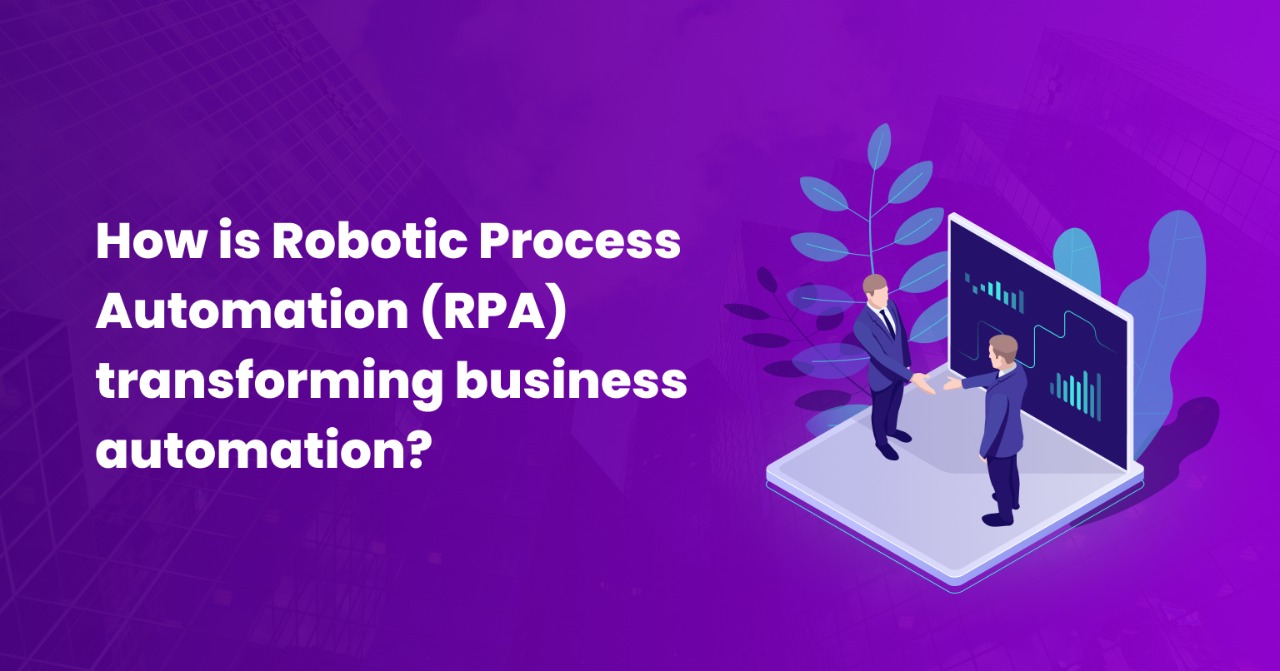According to Deloitte’s third annual RPA survey, 2020, which provides a plethora of data on RPA, 53% of respondents are just getting started on their “RPA journey.” 78 percent of respondents who are now using RPA anticipate spending even more in the next three years. If current trends continue, Deloitte believes RPA will attain “near-universal acceptance” in the next five years. RPA, the application of technology, governed by business logic and structured inputs, aims at automating business processes. A company can use RPA tools to set up the software, or a “robot,” to capture and interpret applications for things like processing transactions, modifying data, triggering replies, and interfacing with other digital systems. RPA scenarios can be as simple as sending an automated email response to as complex as installing hundreds of bots to automate operations in an ERP system.
How is RPA transforming business?
Significant Cost Savings
RPA is revolutionizing businesses by reducing the total costs in an effective manner by automating manual tasks. Software bots allow for round-the-clock operation, which saves money. According to many studies, automation can save up to 30% on labor costs, and software bots are less expensive than full-time personnel.
Improved operational and business management
RPA gives you the ability to tackle challenges that develop because of third-party involvement and the use of an outsourcing team. Without any additional expenditure, software bots can automate all these tasks and provide you with a better solution than an in-house crew. As a result, it aids organizations in remaining in-house by ensuring adequate possession, visibility, and control.
Employee Empowerment
Robotic Process Automation helps in employee empowerment significantly. RPA is beneficial for end-users because it does not require any special technical knowledge to operate. To execute specific activities, you only need the capacity to deploy software bots. It eventually empowers employees by relieving them of routine tasks.
Increasing the Cycle Time
Manual and arduous tasks require time for a human workforce to complete. It reduces cycle time and, on occasion, causes an imbalance in the labor process. However, by using software bots, you are not only resolving this issue but also restoring workplace equilibrium. The software bots do manual tasks faster than the human workforce once they have been programmed.
Increased Return on Investment
RPA requires less capital and lowers an organization’s operating costs dramatically. It can automate all of the manual operations that drain your bank account when you work with manual labor. Deploying software bots gives a higher return on investment.
Complex processes are easier to understand and adapt to Software bots are transforming complex processes into simple things, which is affecting business in a positive way. RPA implementation does not necessitate any hard-core code, allowing it to change difficult procedures with no effort. Businesses are reaping greater benefits than ever before because of faster-automated operations.
Ensures more accurate analytics and insights
RPA is more intelligent than humans, and it is rapidly changing the way we do business. It can collect, systematize, track, analyze, and store both structured and unstructured data. It may also generate reports based on data analysis, which aids in the making of better business decisions. Business operations and predictions are now better and more result-oriented, thanks to RPA ( rpa software ).
Improves the Customer Experience
RPA is superior to a traditional business framework at not just streamlining back-office tasks but also improving customer experience. Employees have been freed from tedious work thanks to software bots, giving them more time to interact with consumers. RPA improves the customer experience by allowing them to spend more time with them.
Improves Accuracy
The most error-prone areas in any company are repetitive jobs. RPA eliminates errors by automating these activities. This is how RPA is altering business by using smarter software bots to ensure accuracy. And such workflow accuracy improves the company’s overall market performance. The more precise the personnel, the more productive the company becomes!
Encourage Agility
With cutting-edge automation technology, RPA provides agility to a business. Manual labor is replaced by a clever and error-free process by software bots. As a result, traditional processes are sped up, and the organization’s agility is increased.
A study by MarketsAndMarkets indicated that the market for collaborative robotics is expected to reach $12 billion by 2025. This figure makes more sense when read in the context of the time and effort employees spent on repetitive tasks. According to research by Automation Anywhere, employees spend 10%-25% of their time on repetitive computer tasks, IT departments spend 30% of their time on basic low-level tasks, and 50% of companies spend between $5- $25 dollars for manual invoice processing. Thus, RPA plays a key role in the automation strategy of any business and it helps businesses direct their workforce toward more critical functions. According to the Institute for Robotic Process Automation (IRPA), RPA in healthcare or automation in healthcare can improve workflows by automating rule-based tasks and processes.
Looking for expert technology consulting services? Contact us today.





